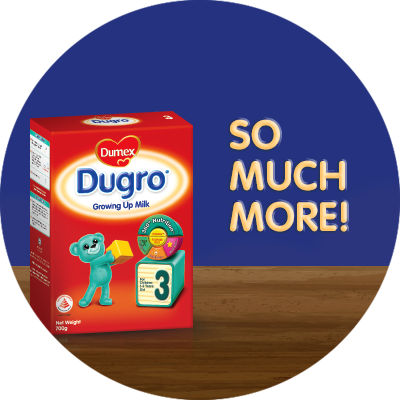Breastfeeding is the best for babies and a healthy diet / maternal nutrition is important when breastfeeding. A decision not to breastfeed can be difficult to reverse. Infant formula is suitable from birth when babies are not breastfed. It is recommended that all formula milks be used on the advice of a doctor, midwife, health visitor, public health nurse, dietitian, pharmacist, or other professional responsible for maternal and child care and the financial implications should be considered. All preparation and feeding instructions should be followed carefully as inappropriate preparation could lead to health hazards.
Tips To Handle and Deal With Tantrums
From whining and screaming to kicking and hitting, tantrums are never a pretty sight. When your child has a meltdown in public, the situation gets even more frustrating as you may feel that others are judging your parenting skills. Take heart, children between 1 and 3 years old are especially prone to tantrums. This is mainly due to pent-up frustration at being unable to express how they feel or what they want.
Here are some tips on how you can better cope with toddler tantrums:
Make sure it’s not a manipulative tantrum
It’s rare for young toddlers but if your child appears to be throwing a fit in order to push your buttons or get his or her way from you, they are manipulating. Calmly but firmly, give verbal cues and body language that say you will not accept tantrums. Walk away or ignore the tantrum by going about your usual tasks. Or say, “Time to stop now – I’ll count to ten.” Never rise to their bait or explode back.
Don’t lose your cool
When your child is swept up in a tantrum, they may respond to yelling or threatening by becoming wilder. Always stay in control, speak calmly and make eye contact. And never take it personally. In certain cases, a child just needs to rage until they calms down. If yours is still making a scene after you’ve tried various techniques, pick them up and get them into a more private place, like the bathroom or car, where they can blow off steam.
Show empathy
Most tantrums are borne out of frustration during stressful situations or being unable to communicate feelings or needs well. Try to sit your child down and say calmly, “tell mummy, what you want.” This encourages them to use words or body language to express themselves instead of acting out.
If your child is upset at not being able to accomplish a task, offer a helping hand or a reassuring “it’s okay.” Show them you understand and respect their feelings by saying things like “I know that makes you angry.”
Sometimes, picking a child up and holding them in an embrace may comfort them. Apply the technique that works with consistency. And after your child has settled down, tell them they were good for stopping the fit.
Issue a time-out if it gets bad
Depending on the child and intensity of the tantrum, an occasional time out may help manage their feelings better and teach self-soothing. Place your child in a quiet or boring spot for a brief period and explain to them why they are there (“to calm down”). Assure them that you will be near, but do not interact during the time-out. Avoid using time-outs as punishment by explaining clearly in simple language and hugging them after they has calmed down.
Prevent the blow-ups
Be sensitive to what usually causes your child’s tantrums. Is it tiredness, boredom, hunger, sickness or overstimulation? Once you identify what your child’s triggers are, it becomes easier to avoid future episodes. Establishing routines like regular meals, nap and bath times also help.
As toddlers grow more independent, the ‘NO’ word will naturally trigger a rebellious reaction. Offer your child choices and the chance to make their own decisions. Saying, “would you like carrots or celery?” rather than “eat your vegetables!” will give them a better sense of control.
Encourage your child to use words
Since most tantrums result from frustration and inability to communicate, always be sensitive to your child’s needs and try to help them put words to their feelings.
Remember that young children understand many more words than they are able to speak. By encouraging them to indicate their needs with words like “more”, “drink” or “tired” or even through sign language, you make it easier for them to communicate with you.
Disclaimer: All content on this Website is provided solely for informational purposes and is not intended as a substitute for medical and/or other professional advice for your specific condition. Please do not disregard medical and/or other professional advice or delay seeking it because of something you have read on this Website. Always seek medical advice before starting any new treatments.


Ask Our Careline
Whatever’s on your mind, we’re here to help




